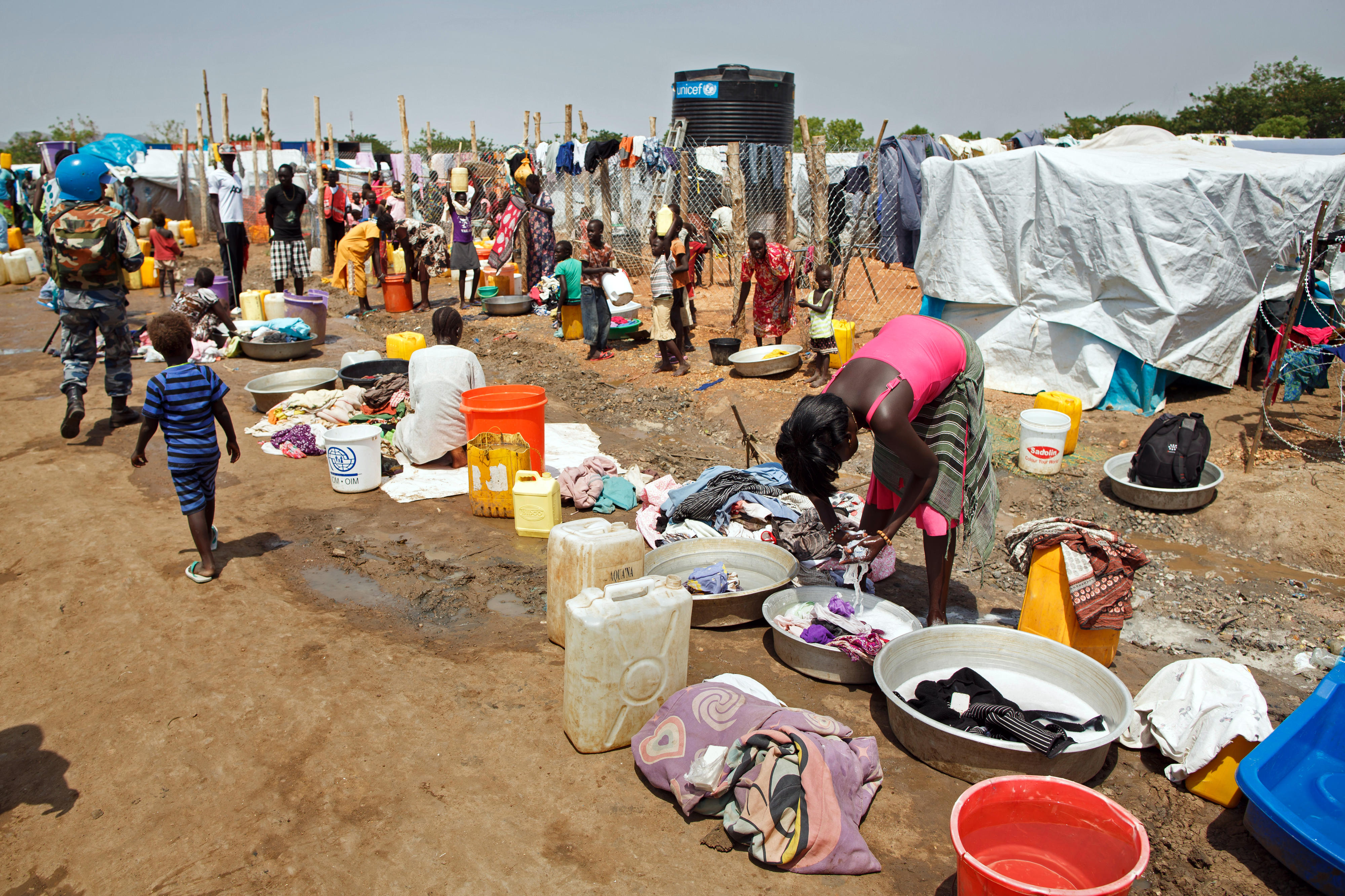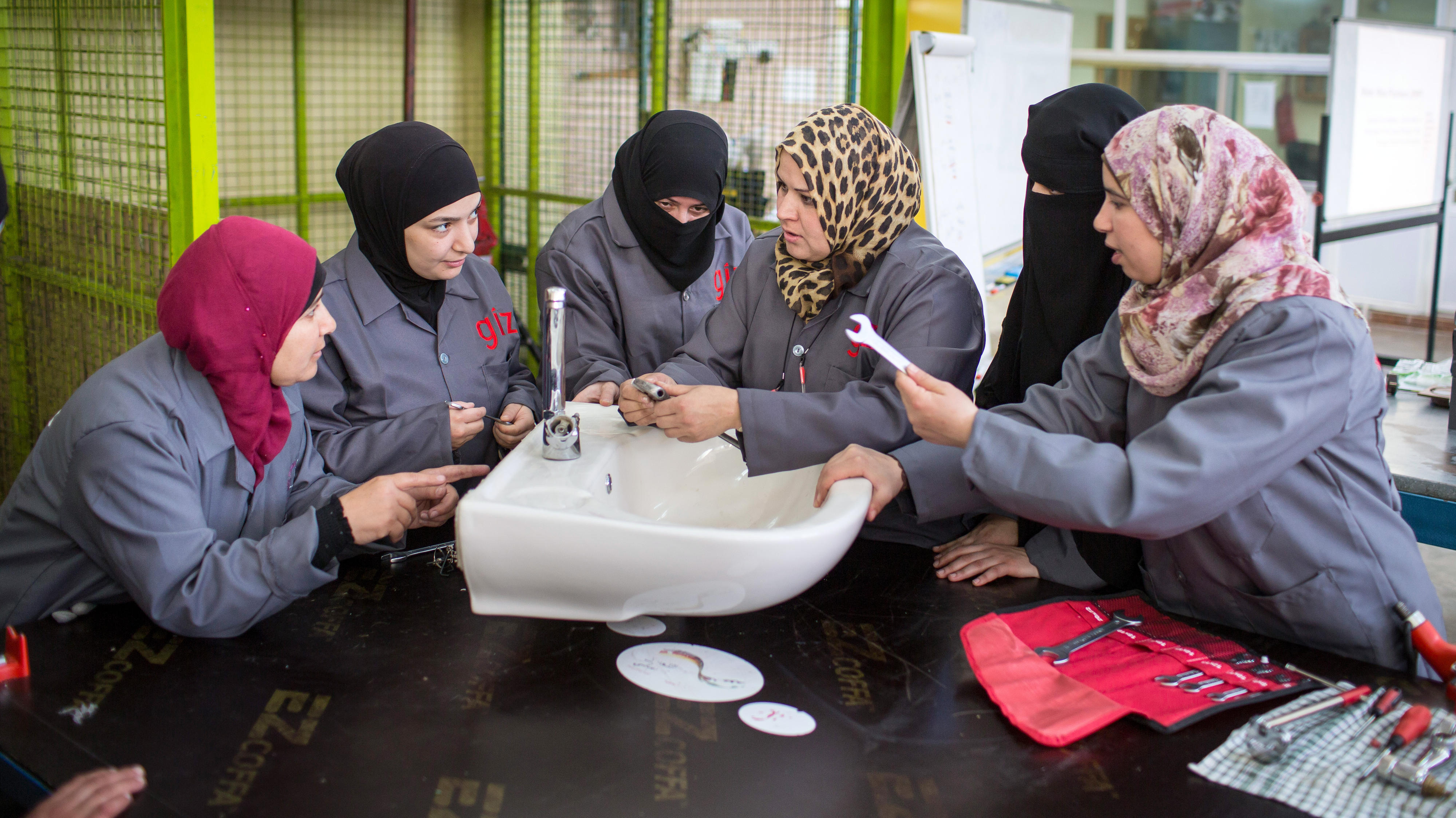People wash their laundry in an internally displaced persons camp in the South Sudanese capital Juba
Copyright© Thomas Trutschel/photothek.net
Services for displaced persons Water, displacement and migration
Water, displacement and migration are closely interrelated. The absence of water security is a driver of displacement and migration. And providing water and sanitation services for displaced persons and migrants is posing significant challenges to host countries.
Tackling the root causes of displacement
Factors that drive displacement and migration include conflict, political and religious persecution and human rights violations, but also poverty, economic hardship and a sense of hopelessness. Natural disasters such as droughts and floods followed by famine – which will continue to become more frequent and more severe as a result of climate change – are another driver of migration.
With its instruments of development cooperation, Germany cannot directly influence the acute drivers of displacement such as war, persecution and violence. However, it can help to improve local living conditions, reduce poverty, prevent conflict and thus create new opportunities and reduce the push factors of migration.
Inadequate water and sanitation services are a frequent cause of poverty. And inadequate services and a lack of participation may cause or exacerbate conflict and diminish people's confidence in government institutions. This means that development activities to improve water, sanitation and hygiene are an impactful and cost-effective tool for preventing poverty caused by poor health, malnutrition and limited participation (for example in education and in economic and social life).
Where water is scarce, conflicts between different users often emerge at the local, national or international level. Fair distribution and sustainable management of water resources play a key role, especially in water-poor countries. Only if there is sufficient water of adequate quality that is managed equitably will it be possible to prevent conflict and achieve peace and development over the long term. That is why the BMZ supports the conservation of water resources, mechanisms for the resolution of water use conflicts, and transboundary cooperation on water resource management.
Improving services, stabilising host regions
Training Syrian refugees as plumbers in Jordan
According to the UN Refugee Agency (UNHCR), some 120 million people worldwide had been displaced by war, violence, persecution or human rights violations at the end of 2023. Providing services for them, such as water and sanitation, is a big challenge for many host countries and communities. Three quarters of all displaced persons are hosted by developing or emerging economies. However, these countries' infrastructure and resources are often barely able to meet the needs of the local population. So the arrival of displaced people means that conflicts over resources may emerge. Refugees will only be well received by host communities if the local people can themselves be sure of having adequate access to water and basic services.
In order to provide adequate services for displaced people, prevent conflict and stabilise host countries, Germany is increasing its investment in developing water and sanitation infrastructure in refugee camps and host communities. The construction of decentralised water and sanitation systems is very labour intensive. This means that support for relevant activities also benefits local and displaced people through employment and income opportunities (see cash-for-work activities). Water and sanitation measures are also easy to combine with vocational training programmes, for instance for skilled personnel for the water sector.
In countries of origin, the BMZ is engaged in efforts to offer displaced people a viable future once more. As part of its transitional development assistance, Germany supports, for example, the restoration of drinking water systems. This creates a link between humanitarian assistance and long-term development cooperation and is intended to ensure that displaced people can return and enjoy decent living conditions.
As at: 13/06/2024


